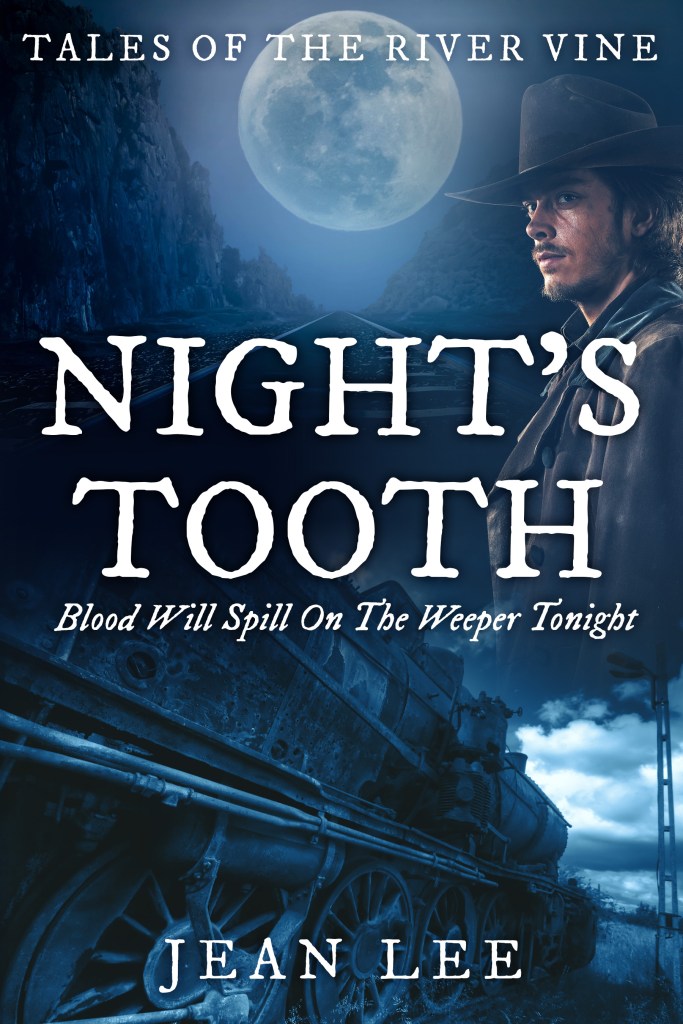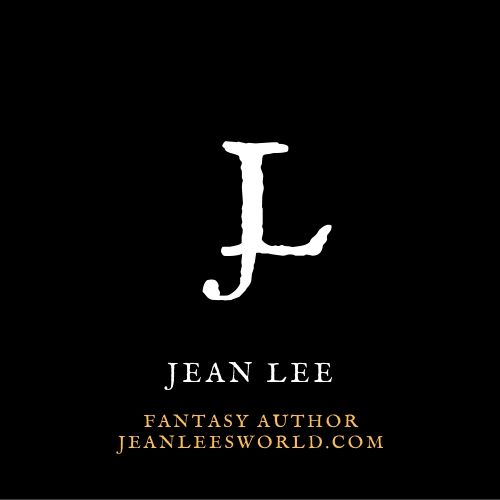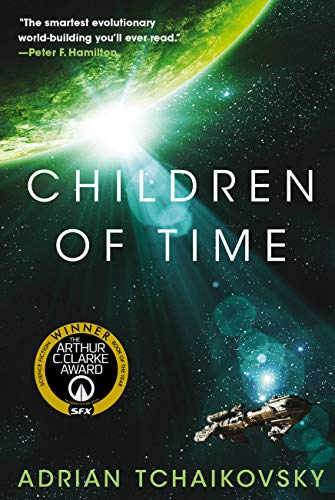Happy Thursday, everyone! While Biff, Bash, and Blondie go after each other–and occasionally me–with squirt guns, it is my pleasure to introduce you to Adrian Tchaikovsky. He’s penned over two dozen books, including the Shadows of the Apt series and Children of Time, winner of the 2016 Arthur C. Clarke Award.

In short, Tchaikovsky is an amazing creative soul that we should all get to know a bit better. 🙂 How would you describe what you do, Sir?
So basically I mostly write books about spiders. Also dogs, AI, shapechangers, insect-people and anything else that lets me get out of a human skull. There’s not much more to me than that, in all honesty.
Considering the depth and breadth of your work, your imagination must have been nurtured with rich inspiration from little on. Are there any folks or favorite authors from your childhood that helped spark your passion for storytelling?
Absolutely – my great storytelling guru from teenage onwards was Diane Wynne Jones.
(Insert girly squeal here) I’m a huge fan, too! Her life is such an inspiration, not to mention her use of classic literature to help create new timeless stories and her knack for building complete characters we readers want to cheer for time and again.
Oh yes, she vastly expanded my frame of reference as to what you can do with a story, how you can play with reader expectations, that sort of thing. The Homeward Bounders and Power of Three, especially. Jones pulls a number of switches on the reader in Power of Three, with regard to precisely what the setting is, who are the ‘good’ and ‘bad’ people, all that, which really opened my eyes. Before that, as well as cutting my teeth on Dr Who novelisations, I loved Tove Jansson, because she built such a wonderful world with her stories.
My home state of Wisconsin is a curious patchwork of farms and wild places. I love exploring this landscape in my mind, creating stories to give shapes to the shadows hiding just out of sight. Would you say the landscape around you inspires your writing, or has been utilized in some way to help build a story’s setting? That swamp you describe at the beginning of Guns of the Dawn feels like this horrible place I knew near my summer camp…
So… actually no. I don’t tend to relate much to places I’ve been, per se. No more than places I’ve read about or seen pictures of. It all just feeds into the general melting pot in my head that I draw new creations from. I’ve never been in a swamp like that, but I seem to be able to imagine these places and put them on a page well enough to make them real to my readers.
All the more impressive, then, Sir, that you can stimulate the reader’s imagine to build such a real place known only in your own mind!
Now, let’s stick with Guns of the Dawn just a touch longer because it has an amaaaazing opener:
I killed my first man today…
The air was hot,muggy with moisture, filled with flies. Emily had not known hot before she came to these swamps. Hot had once been pleasant summer days with the corn ripening gold in the fields. Hot had been the good sun and the rich earth, and the labourers scaring crows or bringing a harvest in; a picnic on the Wolds, with a blue, blue sky cloudless above. Hot was a fierce fire burning in the study when the world outside was chill. There must be another word for this all-encompassing heat.
I’ve already told my husband I’m treating myself to this book after I complete my pedagogical training this summer.
Anyway.
So after a first line that provides the point of view, time, and controversial action, you launch us into a paragraph filled with extremely vivid sensory details further enriched by memories of the past. Thanks to these memories, readers get the impression of a narrator who cares more about the quiet life in the farm land–a stark contrast to one who’s said she’s killed a man. You strike a delicate balance of grounding readers in the present moment of the story while also flashing back into the narrator’s past and how the world once was. Can you describe your process of finding this balance?
This is going to sound very zen, which frankly I am not in any way, but there is a big subconscious element to that level of my writing. I was never formally taught about writing technique, I just read a whole hell of a lot, and then I wrote a whole hell of a lot, and my writing got better with each book I tried. Although there is a definite conscious input, and as I’ve got better I’ve become more aware of things I can do deliberately to create an effect, a great deal of it just comes out of the way the words spill onto the page in their raw form.
Well paint me green with storytellin’ envy, Sir, because your opening lines are as consistently effective as those created by Diana Wynne Jones. A wee survey of your stories uncovers hooks both big and small.
There were no windows in the Brin 2 facility—rotation meant that ‘outside’ was always ‘down’, underfoot, out of mind. The wall screens told a pleasant fiction, a composite view of the world below that ignored their constant spin, showing the planet as hanging stationary-still off in space: the green marble to match the blue marble of home, twenty light years away. Earth had been green, in her day, though her colours had faded since. Perhaps never as green as this beautifully crafted world though, where even the oceans glittered emerald with the phytoplankton maintaining the oxygen balance within its atmosphere. How delicate and many-sided was the task of building a living monument that would remain stable for geological ages to come.
From this paragraph we learn the story’s location, the time frame, and the narrator’s love of this created home. We are also left asking: “What happened to earth?” And we are driven to read on.
From The Expert System’s Brother:
It went wrong for me when they made Sethr an outcast.
From this sentence we learn the story’s point of view, that there is some powerful “they” capable of ruining someone’s life, and because one person’s ruined, so is our narrator. We are also left asking: “Who is this mighty ‘they’? Why should Sethr’s fate mess up life for the narrator?” And we are driven to read on.
Writing compelling openers is surely one of the most important challenges any writer faces. Do you have any advice for writers who struggle crafting their hook?
I am going to raise a hand and say that good lord I’ve had books where the opener has been a problem, and it is super important. Often it’s a matter of where in the story you start – easy to start things too soon and have too much lead-in. And there’s a huge pressure to start with everything on fire, meaning that certain types of storytelling are virtually extinct in the genre right about now. Sometimes I’d like to feel people would just amble with me a bit at the start…
I love the idea of ambling…and with over thirty titles to your name, there’s lots of ambling to do! Some of your titles are stand-alones, like The Expert System’s Brother; some are in trilogies, such as Echoes of the Fall; and then you have your TEN-book series Shadows of the Apt. I tip my hat to you for building worlds unique and complete time, and time, and time again, just like Jones. What thrills you about building a new world? How do you avoid the temptation of re-using elements? No writer wants readers to get déjà vu and think they’re just reading the same story over again.
Building worlds *is* the thing that thrills me, and I have a whole host of ideas yet to come. So far repeating worlds hasn’t been the issue (outside of sequels obviously). I’m more worried about repeating themes, because obviously there are certain things you come back to, each writer to their own, and there’s a real danger that you end up telling the same snippets of story over and over if you don’t remember to give them a different spin.
Another common problem for many writers–as well as movie-makers, I’d say–is crafting an action sequence that moves quickly and fiercely without confusing readers as to what’s going on. I know this was one of the toughest elements to hammer out in my own novel, which contains battles involving several key players duking it out all over the place. Your novels contain intense action on both an epic scale as well as an intimate one. How do you keep the language quick-footed without losing readers along the way?
Action sequences are very much an art of their own. Having a good grasp of the shape of the sequence is important I think – I plan a great deal anyway, and action sequences get thought through in the same way. A chase or a fight has a mini-narrative of its own, including opportunities to bring out character, to foreshadow, and to have their own emotional beats. A particularly big action scene can almost be a book in miniature.
How true!
Another resource that’s always helped me write action scenes as well as stay focused on the feeling of any given moment is music. For every author that tells me he/she loves having music to help set the mood for writing a scene, I hear from another author that he/she needs silence in order to write. Which camp do you call home and why?
I tend to listen to music when I write and have a series of playlists for different moods, to help me focus and blot out distraction. I generally listen to instrumental music from film soundtracks, computer games, and music written specifically for trailers (a good source of consistently hammery action music), Some composers you might not know who have some interesting stuff include Kyle Gabler, Lorne Balfe, and Bear McCreary.
(Gasps) GODZILLA?! Hell to the yes! Sign me up for some new composers to study later this year!
One reason I depend so heavily on music is because it helped me write when my children were small and at home all day. Now that my kids are old enough to attend school, I can usually find an hour of peace to write. Still, it’s extremely tough some days to balance parenthood and writer…hood. Authorhood. You get me. Do you have any tips for balancing writing and parenting?
Honestly my son’s 11 now so he’s more self-sufficient. I write in the mornings and very late evenings, though, which is a convenient way of working around family commitments.
Lastly, let’s talk about the ever dreaded Kryptonite. Writing Kryptonite, to be precise. There’s always something that can sap all creative power away in a heartbeat. For me, it’s a phone call from my sons’ school principal. It takes a good long while of watching my sons lose themselves in their own adventures with droids, transformers, and wild animals before my own creativity sparks back to life. What would you call your Writing Kryptonite, and how do you overcome it?
Arguments with my son will do it, but as a sort of contributor to a general cycle of depressive ups and downs that are quite capable of just doing their own thing with me, without any actual outside stimulus. Writing is a big drive for me, though. If I’m not writing, it has a serious negative effect on my mental state all its own. So although a downswing can make it hard to get going, once I’m actually writing I can generally retreat into it from my problems.
I know just what you mean, Sir. Do I ever know just what you mean.
My deepest thanks again to Adrian Tchaikovsky for taking the time to talk to us today! You can find him on Twitter, Facebook, Goodreads, and his website, too.
~STAY TUNED NEXT WEEK!~
We’re going to meander through some gorgeous western scores in anticipation of my upcoming Night’s Tooth.

Mississippi River Valley, 1870s. The white man wields rails and guns to bring law to the land. But there are more than wild animals hiding in the territories, and it will take more than guns to bring them down.
Sumac the bounty hunter needs no guns to hunt any bandit with a price on his head, even one as legendary and mysterious as Night’s Tooth. But Sumac didn’t count on other bounty hunters coming along as competition, nor did he expect hunters sharing his own magical gifts.
It’s one man against a gang and a mystery, all to protect a train that must cross the territories at all costs…
Inspired by classics like For a Few Dollars More and fantasy cult favorites like Highlander, “Night’s Tooth” is a western with a fantasy edge set in the Fallen Princeborn universe.
Did you miss my August newsletter? Here it is!
We’ll also do some adventuring about Wisconsin and do a wee worldbuilding study of a recent western fantasy, Charlaine Harris’ An Easy Death. More author interviews are on the way, too. I hope you’ll join me!
Read on, share on, and write on, my friends!






Another great interview.
LikeLiked by 2 people
Thank you! Hope you’re well. x
LikeLiked by 1 person
We’re great. Catching up with the daughter who lives in Vietnam.
LikeLiked by 1 person
Reblogged this on lampmagician.
LikeLiked by 1 person
You’re always so awesome. 🙂 xxxxx
LikeLiked by 1 person
Learning by you my dearest Jean 🙏🙏❤❤😘❤
LikeLiked by 1 person
xxxxx 🙂 xxxxx
LikeLiked by 1 person
Great interview. Really interesting as I’ve read Children of Time. It was an Amazon recommendation. Great read where I related to the non human characters way more than the humans.
Look after yourself x
LikeLiked by 1 person
I shall, my friend, so long as you promise to do the same xxxxx
LikeLike
Ooooooo…. FABULOUS interview!!! As you know, I’m a fan of Adrian’s writing… and as ever you have managed to get the best out of your subject, Jean:)). LOVE this one.
LikeLiked by 1 person
I’m always happy to share, my friend! It was so cool he had a spot of time to talk. xxxxx
LikeLike
Great interview, with a great author! 😀
LikeLiked by 1 person
Thanks so much!
LikeLiked by 1 person
fantastic blog friend, love it.
LikeLiked by 1 person
Thanks so much!
LikeLike
Afternoon, Jean. Real good interview. And I love his name. I wonder if he’s related to the classical music composer.
LikeLiked by 2 people
I’m not sure! The question does pique the curiosity…. 🙂
LikeLiked by 1 person
Great interview, Jean! It’s always so interesting to hear about the way in which another (very much more experienced) writer approaches the craft. There’s always something new to takeaway. 🙂
LikeLiked by 1 person
My feelings exactly, my friend!
LikeLike
Pingback: Sunday Post – 11th August, 2019 #Brainfluffbookblog #SundayPost | Brainfluff
Wee, I made the list!
LikeLiked by 1 person
Ah ha, yes. Read lots. What an inspirational interview.
LikeLike
Great interview
LikeLiked by 1 person
Thank you!
LikeLike
❣❣❣
LikeLiked by 1 person
Children of Time sounds great, and I love that the author’s inspiration was a woman!
LikeLiked by 1 person
Thanks! It was such a thrill to discover Adrian and I are both huge fans of Diana Wynne Jones. xxxxx
LikeLike
Pingback: #AuthorInterview: #SFF #Writer #AdrianTchaikovsky on #worldbuilding, #titles, and #readingwithkids. Thanks, @aptshadow! | Jean Lee's World